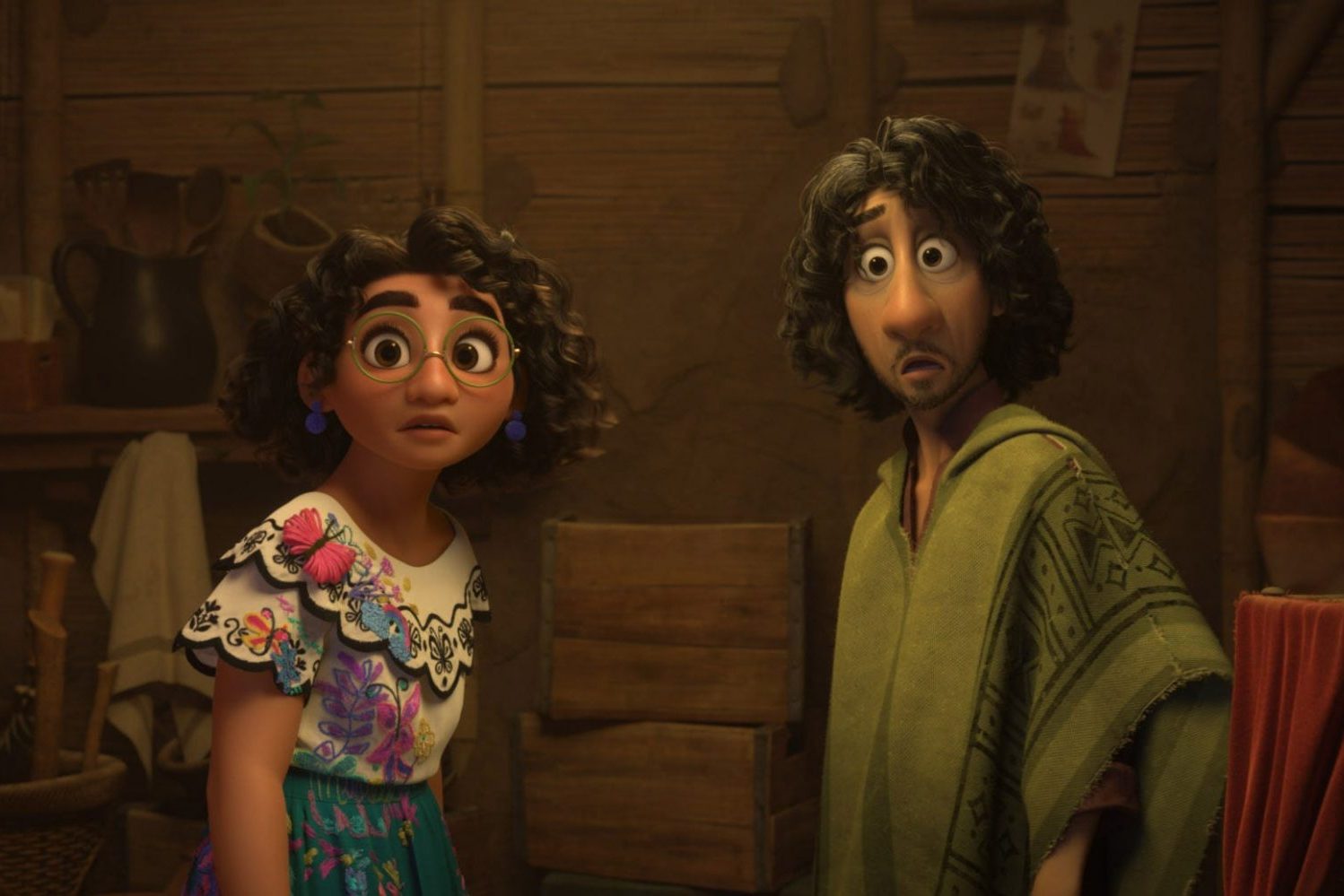In the wake of Disney-produced grand reveals like “Spider-Man: No Way Home,” it seems that “Encanto” hasn’t received the attention or hype it deserves. The grossly underrated animated film is a story filled with magic, honesty, beautiful imagery, amazing music and lovable characters. So, what is “Encanto” about, and what makes it such a gem of a film?
“Encanto” in a Nutshell
The film takes place in a Colombian village named Encanto. Here lives the Madrigal family, who are blessed with an eternally lit, magical candle that grants each of the family members an extraordinary gift. Luisa is gifted with super strength, while Isabel is the epitome of beauty and perfection. Bruno is the family member who can see into the future and who is believed to be missing for a majority of the film. Finally, Antonio is the Madrigal who was most recently bestowed with his gift: the ability to communicate with animals. All the Madrigals have such breathtaking magic — all except Mirabel, of course.
https://streamfab.tv/
Encanto itself is a word that means charm or “the allure of something or someone … the pleasing or exciting quality they have.” Given this meaning, the word encanto is the perfect name for a movie all about a magicless girl who’s part of a fantastical, charmed family. Mirabel, the protagonist of “Encanto,” is the only member of the Madrigal family to have been denied any special gifts by the candle. Because of this, she often struggles to remain optimistic and close with her family, who oftentimes unintentionally isolates her because of her differences.
Mirabel’s struggle to find her identity and connect with her loved ones is just one of the reasons she’s such a lovable, relatable protagonist. In addition to these traits, Mirabel is adventurous, quirky, funny, honest and so much more. She may not have any special gifts, but she is one of the key reasons why “Encanto” is such a magical, spellbinding watch.
Of course, even the Madrigals with special gifts have their own personal struggles throughout the film. Disney’s choice to give time to these characters and their own inner plights is another reason why “Encanto” is a captivating watch. For example, Disney could have easily portrayed Luisa, the super-strong female Madrigal, as a two-dimensional character who never cracks or reveals emotions or insecurities.
Instead, “Encanto” dedicates an entire song for Luisa to express how carrying the literal weight of the village on her shoulders is burdensome at times; she feels like she can’t relax or show any vulnerability like crying. Such rawness and honesty allow viewers to connect closely not just with Mirabel, but with other characters like Luisa.
Even Isabel, the Madrigal who seems to be just a snobby mean girl, ends up revealing other sides of her that help people sympathize with her character. Isabel only seems pretentious because she’s felt like she’s always had to be completely perfect for the family, never able to make a mistake or step a toe out of line.
These character developments are made all the more impactful and magical because they usually happen during a song. Of course, one of the film’s greatest strengths is its extraordinary soundtrack. Meshing such beautiful music with the intense character growth is a combination that makes a deeper impact on viewers.
What’s more, “Encanto” manages to balance such heavy moments with humor fit for both adults and kids. Characters like Bruno and Maribel add a constant flow of comedic relief throughout the film with their quirky and clumsy actions. One of the more underrated characters of the film is Pepa Madrigal, whose gift is the connection between her emotions and the weather. Pepa can be seen running around, oftentimes looking disheveled, with a literal raincloud over her head.
Her personality and gift can be interpreted as a depiction of anxiety, and while anxiety is a serious topic, Pepa’s ability to summon rainbows and sunshine despite the rainclouds provides a redeeming lightheartedness that balances the heavy discussion of mental health. Such a combination of solemnity and joviality is another way that “Encanto” achieves its magic.
Another important part of the magic is none other than Casita, the Madrigal house itself. Making one of the central characters a traditionally inanimate object is a pleasant, creative surprise for viewers. Casita seems to be just as alive as any of the Madrigals: It responds to their requests and conversations, and its tiles, stairs and railings are always shifting, like one big body. Casita never actually utters a word, yet the house manages to be one of the most warming, comforting presences in the film.
“Encanto” and Honesty
“Encanto” is a breath of fresh air in that it shows large corporations like Disney are capable of change and evolution. Looking back at older animated films like “Pocahontas,” one can’t help but cringe at the historical inaccuracy. While it is a children’s movie, the film departs from real-life past traumas and events in a completely inappropriate, offensive way. There is a way to make an animated story appropriate for kids while also telling the truth about history, and “Encanto” does this. This honesty deviates from the smoke and mirrors of past animated films, and is yet another reason why “Encanto” is such a gem.
Toward the end of the film, through a flashback, Abuela reveals what happened to her husband and her people. In the flashback, viewers see white men on horses running down Abuela and the other Colombians. One can assume that the white men are colonists, representing the real-life European colonizers of world history who displaced and destroyed many Indigenous communities. The colonizers in the film are the ones who kill Abuela’s husband. Upon witnessing his death, Abuela cries into the candle in her hands; the candle comes to life in that moment and becomes the magical item that grants the Madrigals their gifts for years to come.
Taking the time to tell the origin of the Madrigal magic and choosing not to glorify or romanticize the past is a greatly appreciated honesty that makes “Encanto” stand out. The magic doesn’t just manifest randomly or come from some happy origin story. Instead, it is tied to tragedy, making it a more tangible and heart-wrenching tale. What’s more, the tragic past displayed in “Encanto” is one that acknowledges the traumas that are a part of true history.
Leaning Away From Cliches
With all the characteristics previously described, it’s clear that “Encanto” leans away from cliches. This is true of the movie’s ending. Spoiler alert: If thinking in a clichéd mindset, one might expect the movie to end in a happily ever after where Maribel is suddenly blessed with the coolest gifts ever. While “Encanto” does have the happy ending, it doesn’t reach this satisfying conclusion in such an expected, cheesy way.
To end the movie with Maribel only finding self-worth and happiness through finally gaining powers would defeat the whole message of “Encanto,” which is that one doesn’t need superpowers to be a worthy hero and person. The end stays true to this message: Maribel never gets any gifts. But it’s more than okay, because she has managed to reach self-actualization while also bringing her family together. It’s a new type of happy ending — an unconventional and creative one that perfectly represents why “Encanto” is such a gem.

















